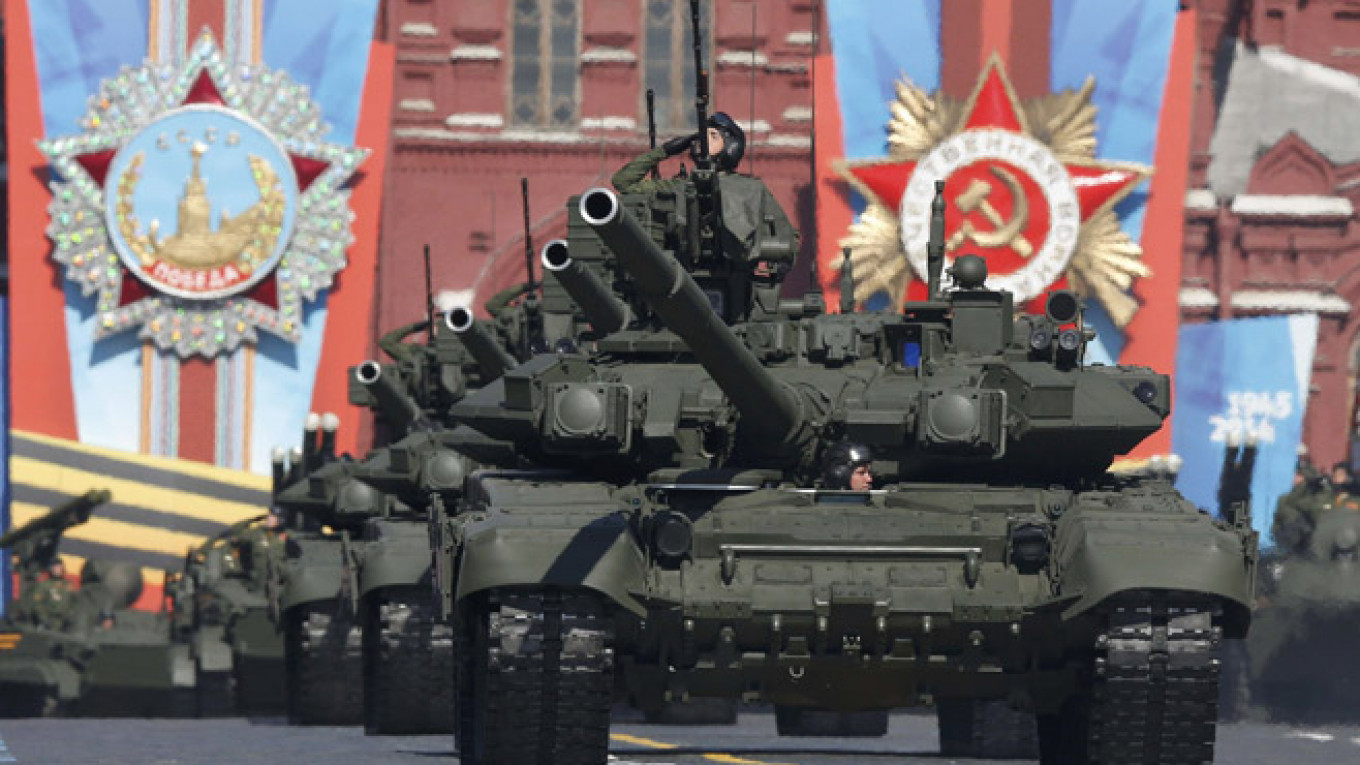How richly symbolic. Just before the 70th anniversary of the Allied landing in Normandy, Barack Obama flew to Poland, the first official victim of Nazi aggression, and pledged more U.S. troops for Europe. Then the summit of the Group of Seven leading industrial nations, reconstituted after Russia's expulsion for the first time since 1998, discussed in Brussels the first forcible re-drawing of European borders since the end of World War II.
In this light, President Vladimir Putin's isolation at the Normandy celebrations held last week, where Russia' former allies against Nazi Germany kept contact with him to a small handful of meetings and public encounters, was outright ominous.
Indeed, it almost seems that a new war in Europe is upon us: in recent days, pro-Russian separatists have opened up large swaths of Ukraine's border with Russia, allowing for an unimpeded flow of reinforcements from across the former Soviet Union.
Most people in the U.S. and Europe still doubt that Russia represents a threat to the existing world order. Wall Street financial analysts started to price in a new cold war two months ago, but they quickly overcame their anxieties about Russia. Since then the market has been setting new highs, irregardless of the ongoing chaos in eastern Ukraine.
Such insouciance is misguided. The new cold war will be nasty and long, and Russia won't be easy to contain. Confrontation with the West enjoys massive support in Russia. A fresh opinion poll conducted by the Levada Center found that 71 percent of Russians view the U.S. negatively, with a third holding a strongly negative opinion. Some 60 percent dislike the European Union as well. Even more threatening are the Russian volunteers eager and willing to fight in Ukraine.
Meanwhile, the West is encouraging Moscow's belief that it can carry on its policies with impunity. Threats of tough sanctions, which were repeated last week, belie Europe's reluctance to start a trade war with Russia and Washington's inability to convince its allies to go beyond oral tsking.
Putin, of course, does not seem to have planned out the new cold war. It began as a backlash to the popular uprising in Kiev which ousted Ukrainian President Viktor Yanukovych, and then solidified with Russia's annexation of Crimea. Since then, Putin has been improvising, inventing the new conflict from scratch.
His speech at this year's St. Petersburg Economic Forum, though, reveals that a long-term cold war policy is taking form.
Most observers saw it as conciliatory: Putin appeared to have recognized the results of the Ukrainian presidential election and encouraged foreign companies to stay in Russia. In fact, Putin laid the groundwork for the new cold war. Russia will not go into isolation, at least not yet. To stop buying Western goods outright would be self-defeating — especially high-tech items like the Mistral helicopters carriers it contracted from France. But in the meantime, he promised that Russia will work on import substitution, mobilizing its industry to produce strategically important products domestically.
Meanwhile, Moscow will carry on an underhanded sort of warfare. It will always declare itself ready to negotiate — for example, Putin met with Ukraine's President-elect Petro Poroshenko in France. Then, while denying all involvement, Russia will continue to stand behind separatists in eastern Ukraine, stationing large amount of troops on its shared border and allowing Russian volunteer fighters to filter in. In the most extreme scenario, combat methods being honed in Donetsk and Lugansk could be duplicated elsewhere in Ukraine, in the Baltics and in other regions.
Still, this will be a different cold war than the last one. For all its tough rhetoric, the Soviet Union of the Brezhnev era was a tired, conservative power. Putin's Russia is different. It is bursting with negative energy, hatred of the outside world and enthusiasm for confrontation.
It's a throwback not so much to the cold war diplomacy of missile treaties and international alliances, as to the Soviet Union's revolutionary birth, when the new Bolshevik government in Moscow actively undermined its enemies in the West.
Alexei Bayer, a native Muscovite, lives in New York. His detective novel "Murder at the Dacha" was published by Russian Life Books in 2013.
A Message from The Moscow Times:
Dear readers,
We are facing unprecedented challenges. Russia's Prosecutor General's Office has designated The Moscow Times as an "undesirable" organization, criminalizing our work and putting our staff at risk of prosecution. This follows our earlier unjust labeling as a "foreign agent."
These actions are direct attempts to silence independent journalism in Russia. The authorities claim our work "discredits the decisions of the Russian leadership." We see things differently: we strive to provide accurate, unbiased reporting on Russia.
We, the journalists of The Moscow Times, refuse to be silenced. But to continue our work, we need your help.
Your support, no matter how small, makes a world of difference. If you can, please support us monthly starting from just $2. It's quick to set up, and every contribution makes a significant impact.
By supporting The Moscow Times, you're defending open, independent journalism in the face of repression. Thank you for standing with us.
Remind me later.






